(MENAFN- AzerNews) By Ayya Lmahamad
A delegation led by the Azerbaijani and Turkish prosecutors-general have visited Shusha city and Fuzuli region liberated from Armenian occupation in last year's 44-day war.
A delegation led by Turkey's Istanbul Prosecutor-General Shaban Yilmaz is on an official visit to the country at the invitation of Azerbaijani Prosecutor-General Kamran Aliyev.
Initially, they got acquainted with the Victory Road, which is considered a symbol of Azerbaijan's victory in the Second Karabakh War. Kamran Aliyev stressed the importance of the Victory Road, in the construction of which Turkish companies are actively involved.
Then the delegation visited Fizuli International Airport, which is considered to be the 'air gates of Karabakh'. The guests were informed about the conditions created at the airport, which meet all modern requirements.
It was noted that Armenians destroyed settlements, cemeteries, historical and cultural monuments in Fuzuli, which was one of the most developed cities of Azerbaijan.
Moreover, the guests were briefed on the large-scale reconstruction in Shusha - the cultural capital of Azerbaijan. They were informed that in the city, in addition to the implementation of infrastructure projects, work is underway to restore historical, cultural, and religious monuments.
The guests visited the fortress built by Karabakh's Panakhali khan, the complex of the museum-mausoleum of Azerbaijani poet and public figure Molla Panah Vagif, the Yukhari Govhar Agha mosque, the house-museum of People's Artist Bulbul, etc. They also visited the site, where the Shusha Declaration was signed in 2021.
As a result of ecological terror committed by Armenia through the use of banned chemical weapons and deliberate mass fires, the environment in Azerbaijan's Karabakh region, including freshwater sources, was physically and chemically polluted, various rare plant and animal species were destroyed and the self-regulation in rivers and lakes ceased. Subsequently, this turned the water basins into a dead zone, harmful to all living organisms.
Armenia's aggression and illegal occupation caused irreparable damages to Azerbaijan's cultural heritage, which includes thousands of cultural values, including monuments of the world and national importance, mosques, temples, mausoleums, museums, art galleries, sites of archaeological excavations, libraries and rare manuscripts.
At the same time, Armenia deliberately and constantly planted mines on Azerbaijani territories, in violation of the 1949 Geneva Convention, thereby being a major threat to regional peace, security and cooperation.
A Moscow-brokered ceasefire deal that Baku and Yerevan signed on November 10, 2020, brought an end to six weeks of fighting between Armenia and Azerbaijan. The Azerbaijani army declared a victory against the Armenian troops. The signed agreement obliged Armenia to withdraw its troops from the Azerbaijani lands that it has occupied since the early 1990s.
The peace agreement stipulated the return of Azerbaijan's Armenian-occupied Kalbajar, Aghdam and Lachin regions and withdraw its troops from the Azerbaijani lands that it has occupied since the early 1990s. Before the signing of the deal, the Azerbaijani army had liberated around 300 villages, settlements, city centers, and historic Shusha city.
--
Ayya Lmahamad is AzerNews' staff journalist, follow her on Twitter: @AyyaLmahamad
Follow us on Twitter @AzerNewsAz
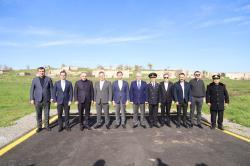
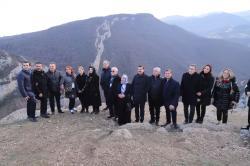


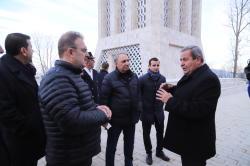
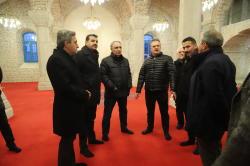

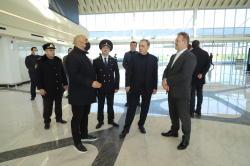
- #GENERAL PROSECUTOR'S OFFICE
- #SHUSHA
- #FUZULI
- #TURKEY
- #AZERBAIJAN
MENAFN25112021000195011045ID1103250967
Legal Disclaimer:
MENAFN provides the information “as is” without warranty of any kind. We do not accept any responsibility or liability for the accuracy, content, images, videos, licenses, completeness, legality, or reliability of the information contained in this article. If you have any complaints or copyright issues related to this article, kindly contact the provider above.